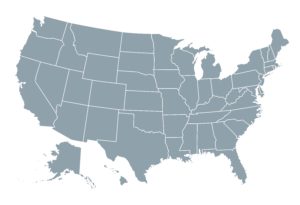Is Medicaid Expanding in Your State?

As of late 2022, more than 84 million people were enrolled in Medicaid — a number that has steadily increased in recent years. Amid the pandemic, total enrollees climbed by 20 million people from 2020 to 2022 alone. Depending on where you reside, passage of such an expansion could mean you become newly eligible for Medicaid.
Meanwhile, the debate among lawmakers on further expanding Medicaid in some 11 states continues to evolve.
What Is Medicaid?
Medicaid is a nationwide program designed to provide public health insurance for low-income individuals, including seniors and people with disabilities. Established in 1965, it serves today as the single-largest source of health coverage in the U.S.
Because Medicaid is jointly run by the federal government and state governments, its benefits — and your ability to qualify for them — can vary greatly depending on your state.
As a result, certain populations, even if they are living in poverty, may not be eligible for Medicaid. For example, in some states, a healthy, childless adult couple under age 65 with limited means may not qualify for health coverage through Medicaid if their state has not adopted Medicaid expansion.
What Is Medicaid Expansion?
Medicaid coverage across the country has evolved since the program was first created. Different states may employ different eligibility criteria, income limits, or application requirements.
In 2010, the Affordable Care Act (ACA) attempted to expand Medicaid coverage to adults between 18 and 65 with incomes below a certain level, regardless of their age, family status, or health. The ACA also sought to supply those whose incomes fell within specific limits with premium tax credits that would help them afford the purchase of a private insurance plan.
Yet, the Supreme Court ruled that the federal government could not force states to expand coverage. States can decide whether to expand Medicaid to cover more people. This has created a coverage gap: Those who have incomes below 100 percent of the federal poverty level and who live in states that have opted against expanding Medicaid may not qualify for Medicaid, or for the premium tax credits.
Medicaid Expansion States
As of early 2023, most states have adopted the ACA’s broadening of Medicaid. Per the Kaiser Family Foundation, the following states – in addition to the District of Columbia – have expanded Medicaid coverage per the ACA:
Alaska
Arizona
Arkansas
California
Colorado
Connecticut
Delaware
Hawaii
Idaho
Illinois
Indiana
Iowa
Kentucky
Louisiana
Maine
Maryland
Massachusetts
Michigan
Minnesota
Missouri
Montana
Nebraska
Nevada
New Hampshire
New Jersey
New Mexico
New York
North Dakota
Ohio
Oklahoma
Oregon
Pennsylvania
Rhode Island
Utah
Vermont
Virginia
Washington
West Virginia
States Without Medicaid Expansion
States that have not adopted Medicaid expansion per the ACA include:
Alabama
Florida
Georgia
Kansas
Mississippi
North Carolina
South Carolina
Tennessee
Texas
Wisconsin
Wyoming
Medicaid Expansion Developments
The map of Medicaid expansion states continues to evolve, however:
South Dakota voters approved a ballot measure adding Medicaid expansion to the state constitution in November 2022. The expansion will go into effect beginning July 1, 2023.
In February 2023, the North Carolina House of Representatives passed a bill to expand Medicaid. It now awaits review in the Senate.
Meanwhile, also in February 2023, the Wyoming House of Representatives declined to address a proposed Medicaid expansion bill.
Arguments Against Medicaid Expansion
In states without Medicaid expansion, those opposed to expanding coverage have voiced such concerns as increased costs and a higher risk of fraud. Depending on where you reside, passage of such an expansion could mean you become newly eligible for Medicaid.
For example, some argue that Medicaid expansion would burden their state’s budget. Although the federal government funds the majority of expanded Medicaid, it does not completely cover the costs; states pay 10 percent. In the case of Wyoming, House Majority Floor Leader Rep. Chip Neiman has raised concerns that the federal government would not uphold the federal match, leaving the state to bear more financial responsibility.
Others contend that Medicaid’s most vulnerable beneficiaries may face greater competition for resources, that other health care options are available to those in need, or that expansion may not ultimately translate into better long-term health outcomes.
How Older Adults Can Find Out if They Are Eligible for Medicaid Coverage
In states that have adopted expanded Medicaid, you may qualify if your household income lies below 133 percent of the federal poverty level, according to HealthCare.gov.
For older adults, most states provide Medicaid to those who receive Supplemental Security Income (SSI). To be eligible for SSI, individuals must have low incomes, limited assets, and be unable to work due to a qualifying mental or physical impairment. Per the Kaiser Family Foundation, some states expand Medicaid to older adults and disabled people whose income surpasses the SSI limit but falls below the federal poverty level.
You may be able to qualify for Medicaid through the Medically Needy program if your state has established one. The Medically Needy program allows people to enroll in Medicaid when they have significant medical expenses. When they subtract their medical spending from their total income, they can qualify for Medicaid if their income, minus health care expenses, falls below a specified limit (which also varies by state).
Contact Us to See if You Quality
Depending on where you reside, passage of such an expansion could mean you become newly eligible for Medicaid. Again, the rules governing Medicaid and its complex eligibility criteria varies widely by state – and there are several planning methods we can implement to get you qualified & SAVE YOUR ASSETS. To find out whether you may be able to receive public health insurance through Medicaid, call our office at 601.925.9797 or click here to have someone from our office call you to schedule a free phone consultation with our firm.








